Backstreet's Back... In Brazil: Backstreet Boys Talk AI, 25 Years of 'Millennium' & Why 'Brazil Is Our Second Home'
As I stepped into the sleek, modern studio in Rio de Janeiro, I couldn't help but feel a sense of nostalgia wash over me. The year was 1999, and the world was about to be introduced to one of the most iconic boy bands of all time – the Backstreet Boys. Little did we know that their debut album, "Millennium," would go on to sell over 100 million records worldwide, cementing their status as pop royalty.
Fast forward 25 years, and I'm sitting down with two members of the group, Nick Carter and Howie Dorough, in a Zoom call that's about to take me on a journey through the highs and lows of their illustrious career. As we dive into the world of AI, music industry trends, and the special place Brazil holds in their hearts, I'm reminded why this band has endured for so long.
"We were one of the first groups to really harness the power of technology," Nick Carter explains, his enthusiasm palpable over the video call. "We used it to connect with our fans, to create a sense of community that was unparalleled at the time." Howie Dorough chimes in, "And it wasn't just about the music – we were also experimenting with AI-generated visuals and effects to enhance our live shows."
As I delve deeper into their conversation, I realize that the Backstreet Boys' innovative approach to technology has been a constant theme throughout their career. From using AI-powered tools to create new sounds and beats to incorporating cutting-edge visual effects in their performances, they've always pushed the boundaries of what's possible.
But it's not just about the tech – it's also about the people. As we discuss the impact of social media on the music industry, Nick Carter shares a poignant observation: "The way fans consume music has changed dramatically over the years. We used to rely on radio airplay and physical album sales; now it's all about streaming and online engagement." Howie Dorough nods in agreement, "And that's not just limited to music – it's also about how we interact with each other as humans. Social media has both connected us and isolated us at the same time."
As our conversation turns to their love for Brazil, I'm struck by the depth of their affection for this vibrant country. "Brazil is our second home," Nick Carter declares without hesitation. Howie Dorough adds, "We've had some of the most incredible experiences here – from performing in front of sold-out crowds to exploring the stunning natural beauty of the Amazon rainforest."
As I wrap up my conversation with the Backstreet Boys, I'm left with a sense of awe and admiration for this talented group. Their commitment to innovation, their passion for connecting with fans, and their love for Brazil have all contributed to their enduring success.
In an era where AI is increasingly shaping our lives, it's heartening to see artists like the Backstreet Boys embracing its potential while staying true to their artistic vision. As they continue to push the boundaries of what's possible in music, one thing is clear – their legacy will only continue to grow stronger with each passing year.
The Implications of AI on Society
As we explore the intersection of technology and artistry, it's essential to consider the broader implications of AI on society. From creating new job opportunities to raising concerns about bias and accountability, the impact of AI is far-reaching and multifaceted.
In the music industry, AI-powered tools are being used to generate new sounds, beats, and even entire songs. While this has opened up exciting possibilities for artists, it also raises questions about authorship and ownership. As Nick Carter notes, "The line between human creativity and machine-generated content is becoming increasingly blurred."
However, as Howie Dorough points out, AI can also be a powerful tool for social good: "We've seen how AI can help us connect with fans in new ways – from personalized playlists to immersive live experiences. It's about using technology to enhance the human experience, not replace it."
As we look to the future, one thing is clear – the intersection of art and technology will only continue to evolve. By embracing this fusion, artists like the Backstreet Boys are paving the way for a new era of creativity and innovation.
The Legacy of 'Millennium'
As I reflect on our conversation with Nick Carter and Howie Dorough, I'm struck by the enduring legacy of "Millennium." Released in 1999, this album marked a turning point in pop music history – it was one of the first albums to heavily incorporate technology into its production.
The album's success can be attributed to the Backstreet Boys' willingness to experiment and take risks. As Nick Carter notes, "We were always pushing the boundaries of what was possible with our music. We wanted to create something that would stand the test of time."
And stand the test of time it has – "Millennium" remains one of the best-selling albums of all time, with over 100 million records sold worldwide. Its impact can be seen in countless other artists who have followed in their footsteps, incorporating technology into their music and performances.
As I conclude my conversation with the Backstreet Boys, I'm left with a sense of gratitude for this talented group. Their commitment to innovation, their passion for connecting with fans, and their love for Brazil have all contributed to their enduring success.
In an era where AI is increasingly shaping our lives, it's heartening to see artists like the Backstreet Boys embracing its potential while staying true to their artistic vision. As they continue to push the boundaries of what's possible in music, one thing is clear – their legacy will only continue to grow stronger with each passing year.
*Based on reporting by Billboard.*
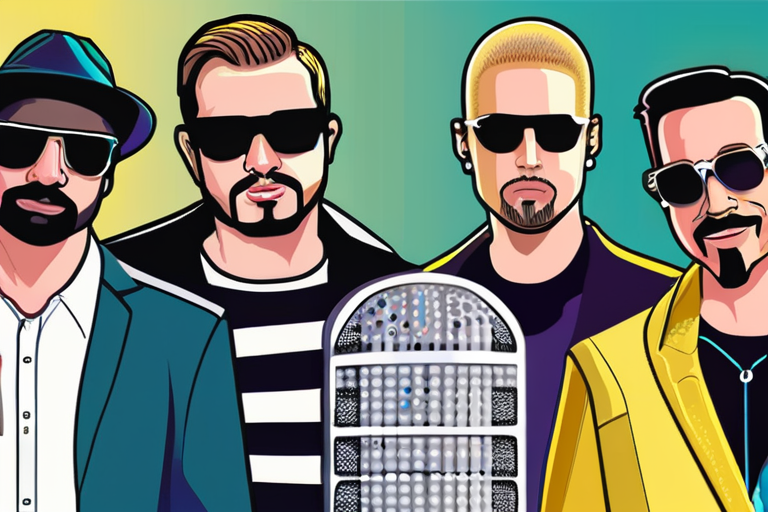

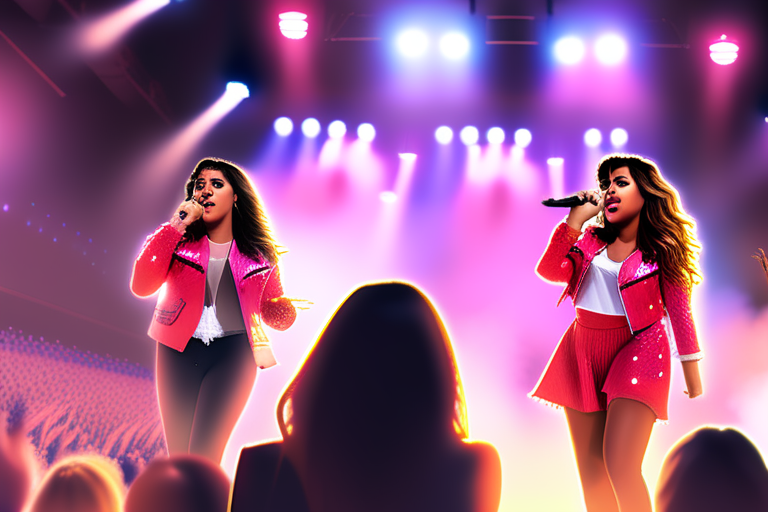
 Hoppi
Hoppi
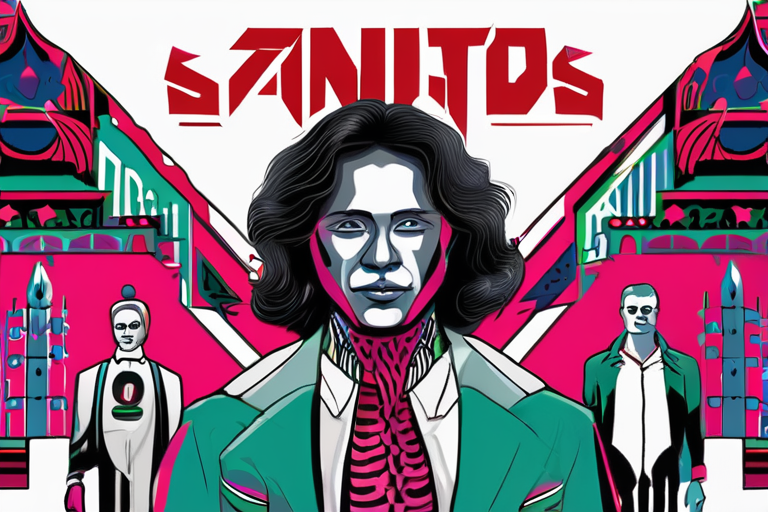
 Hoppi
Hoppi

 Hoppi
Hoppi

 Hoppi
Hoppi
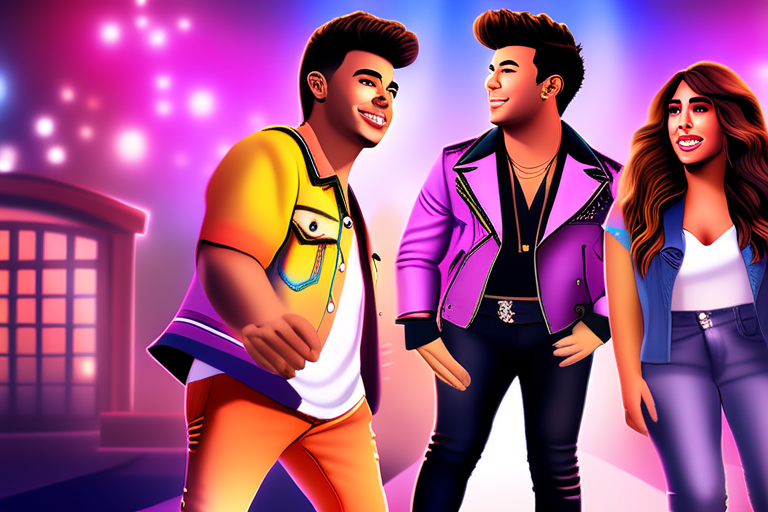
 Hoppi
Hoppi
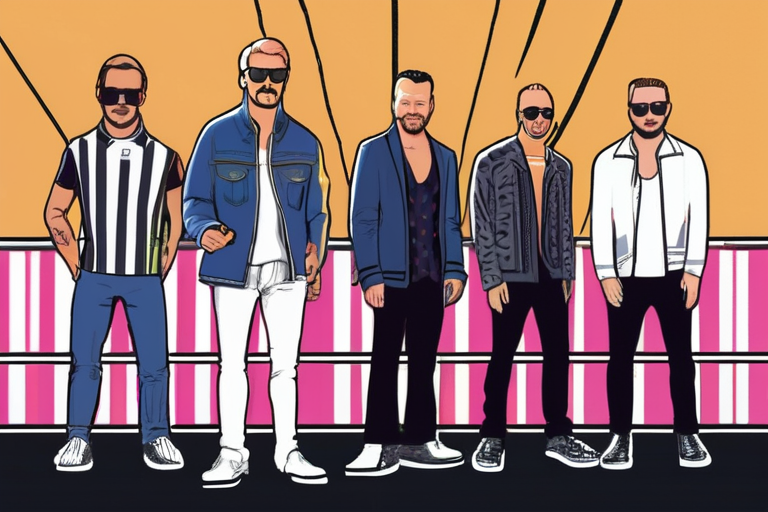
 Hoppi
Hoppi











